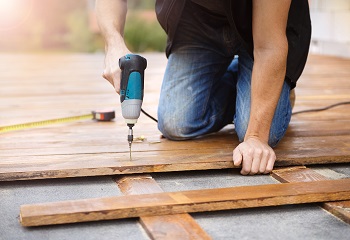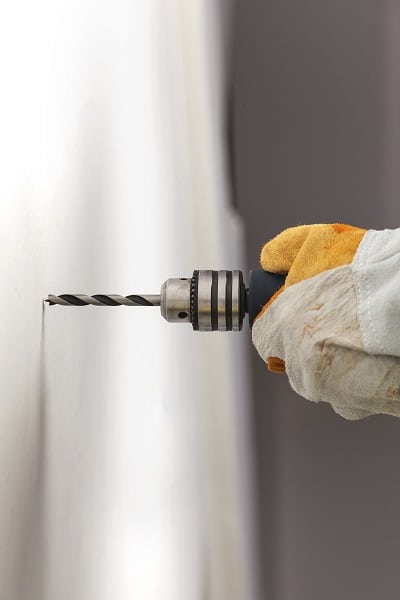The Hidden Costs of Renovating Revealed
Introduction
One of the ways that homeowners and investors are increasing the equity in their properties is by undertaking home improvements and renovations.
However, like anything that takes time and costs money, many are unprepared for the reality of completing property rejuvenations.
Often home improvement projects end up costing more than was budgeted and taking much more time as well, which in turn can increase costs.
In this guide, we’ll outline some of the pros and cons of home improvement, including the hidden costs, so your project has the best chance to of finishing on time and most importantly on budget!
Relocation costs
One of the first things to think about when considering home improvements and renovations is whether you will stay in the property during the project.
The reality is renovations are messy and mostly serve up a variety of inconveniences that many people struggle to cope with. For example, could you continue living in your property without a kitchen? How about no plumbing or electricity?
The key to any successful home improvement or renovation is having a realistic budget and sticking to it!
Some renovators consider moving out of their property during the really tricky parts of the project, perhaps when a new kitchen or bathroom is being installed, but this brings with it costs of its own.
Things to consider include the relocation costs involved with moving out for a period of time. Will you couch-surf will friends or family to keep costs down? The problem with such an arrangement, of course, is that projects can and do run over time, all of the time, and this can stretch even the strongest of friendships.
Depending on your specific situation, there are a number of aspects to consider when determining whether to stay or go during a renovation. These can include:
- The size and scope of the project – such as whether it’s cosmetic or structural.
- Whether you’ve budgeted for relocation costs, including renting somewhere else short-term and any moving costs.
- Whether you have children and/or pets.
- The advice of the tradespersons who often prefer to work in peace.
Council approval and certification
Home improvement and renovation projects often require some type of council approval or certification. If renovating a strata unit you may also need to gain body corporate or owners corporation approval before beginning.
Before you pick up the hammer, or hire someone to demolish a wall, it’s vitally important that you understand any necessary approval processes.
If you’re planning a structural renovation, it’s likely that you’ll need council approval for the project. The systems for this vary from council to council, as does the specifics of what may be required and, again, there will be costs associated with obtaining this approval and certification.
It’s also important to complete all your due diligence into any builders you’re considering engaging for the project long before you sign any paperwork with them. The last thing you want is for the builder to disappear halfway through the project or not have the necessary licences or insurances, which may ultimately result in more costs for you.
Taxes
If you’re undertaking home improvements to your principal place of residence, then there are unlikely to be any taxation implications.
But this isn’t the case for many renovators who are specifically completing projects to make a profit.
According to the Australian Taxation Office, you’re likely to be entering into a profit-making activity if you acquire a property with the intention of renovating and selling it at a profit, and go about it in a business-like way. This could have implications for the way the profits are taxed (as income or capital) and for GST.
The ATO says that if you’re considered a personal property investor, your net gain or loss from the renovation (proceeds from the sale of the property less the purchase and other costs associated with buying, renovating and selling it) is treated as a capital gain or capital loss respectively. Capital Gains Tax (CGT) concessions such as the CGT discount and the main residence exemption may reduce your capital gain.
Likewise, the ATO states that if you’re carrying out a profit-making activity of property renovations, you report in your income tax return your net profit or loss from the renovation (proceeds from the sale of the property less the purchase and other costs associated with buying, holding, renovating and selling it). You’re entitled to an Australian business number (ABN) and you may be required to register for GST if the renovations are substantial.
It’s vitally important that you obtained professional expert advice regarding any taxation implications of your home improvement or renovation project.
Structural costs
According to Engineers Australia, structural engineering is concerned with the research, planning, design, construction, inspection, monitoring, maintenance, rehabilitation and demolition of permanent and temporary structures, as well as structural systems and their components.
It also considers the technical, economic, environmental, aesthetic and social aspects of structures. The projects that will involve an engineer include:
- Retaining wall design (over a certain height).

- Wall removal during structural renovations.
- Building defect inspections and reports.
- Pre-purchase building inspections.
- Dilapidation reports.
- Deck and carports design.
- Second storey additions.
- Footing design.
- Reinforced concrete column design.
- Structural damage caused by construction, or by storms or earthquake.
If you’re planning a structural renovation, you will likely need to engage one of these specialist engineers, which again has a cost associated with it.
According to hipages, a structural engineer’s hourly rate starts at around $100 per hour but can go up to $250 an hour for fully qualified professional service on a complex project. Expect to be charged based on the complexity of your project and how much time they will spend on it.
For detailed plans, covering large renovation projects, drawn up by an engineer, expect to pay anywhere from:
- $4,500 to $15,000 depending on the complexity of the project/home you are designing
- Five per cent to 12 per cent of the projected construction cost.
Like the engagement of any qualified person to help with your home improvement or structural renovation project, it’s important to do your research and obtain different quotes before hiring anyone. This is because costs can vary widely, as can the suitability of someone for your project, especially regarding strict timelines you may have to keep costs down.
Site Works
Now that’s you’ve hired all the necessary experts to help with your project and triple-checked your budget, your home improvement project can begin – and this is where the fun really begins!
The start of the project is generally called “site works”, which is when the site starts to be prepared and again there are costs attached to this step of the process – especially in larger structural renovations.
It can sometimes be difficult to obtain quotes for site works beforehand because of the huge variety of variables that can, and do, crop up. These can include soil condition, access issues and the slope of the block.
It is still important to obtain a firm quote for site works, just be aware that the quote may include a number of variables and therefore may be on the high side.
Site works undertaken for a project can include:
- The use of tractors, excavators and cranes.
- Removal of trees – tree fellers may be required for this, which are additional costs and may require council approval.
- Flattening the land.
- Building retaining walls.
Temporary site requirements
With structural renovations or small development projects, you will also need temporary site requirements to comply with council regulations. This is different to site works and will be additional cost due to the facilities required such as:
- Any fencing requirements.
- Temporary toilets for construction workers.
- Erosion control requirements.
It’s important to have these costs included in your original quotes, otherwise you can easily run over-budget.
Experienced builders will be usually familiar with what’s required in their particular area, so they should be able to take account of what’s likely to be required and include it in their quote.
Repairs

As we mentioned at the start of this article, many home improvement and renovation projects end up costing more than wasbudgeted. This is because there are a number of potential problems that are almost impossible to identify before the work actually begins. You can reduce the possibility of this occurring by engaging the appropriate professionals at the outset, but sometimes unseen repairs do crop up.
When the project has started, you may come across unexpected repairs that must be remedied. These can include rewiring, significant plumbing issues, or problems that arise during the project, for example, demolition mistakes that require significant repairs or rectification.
Of course, this is all costs money, which is why it’s so important to have a contingency buffer within your budget to allow for any unexpected repairs. It’s often a good idea for this to be about 10 to 20 per cent of the total budget so that you’re not left with any nasty financial surprises.
Intuitive Finance – the smart choice
As this article has outlined, there are many hidden renovation costs that can make a big difference to the financial success of your home improvement project. Having a professional team on your side could make all the difference to the outcome for you.
Now more than ever, you need investor and renovation savvy people working on your financial side, who can help you understand and budget for all of the potential costs associated with home improvement and renovation projects. It’s also important to always do your own research about whether this type of wealth creation strategy is the right one for you.
The world of banking and finance can be a pretty daunting one for both novice and sophisticated investors and since our establishment in 2002 we’ve focused on providing outstanding service and business standards.
This approach was vindicated when we were recently named Victoria’s favourite mortgage broker at the 2015 Investors Choice Awards.
If you’re considering undertaking a home improvement or renovation project on your home or investment property, for expert advice on the pros and cons of this strategy contact Intuitive Finance to ensure you have the right information and expert support on your side from day one.
Further reading
There is a wealth of home improvement and renovation information available online and in other media. Please remember, however, that many of the renovation shows on television are made for entertainment purposes, so the outcomes they achieve are sometimes not overly realistic or true to life.
For more information about home improvement and renovations consider the following sources:
- Home improvement and renovation calculators
- Home improvement and renovation costs guide
- The formula for successful renovations
- Choosing the right mortgage solution of variable fixed or both - October 8, 2024
- All You Need to Know About Bank Valuations - September 20, 2024
- Getting the Most out of the Spring Property Season - August 26, 2024


